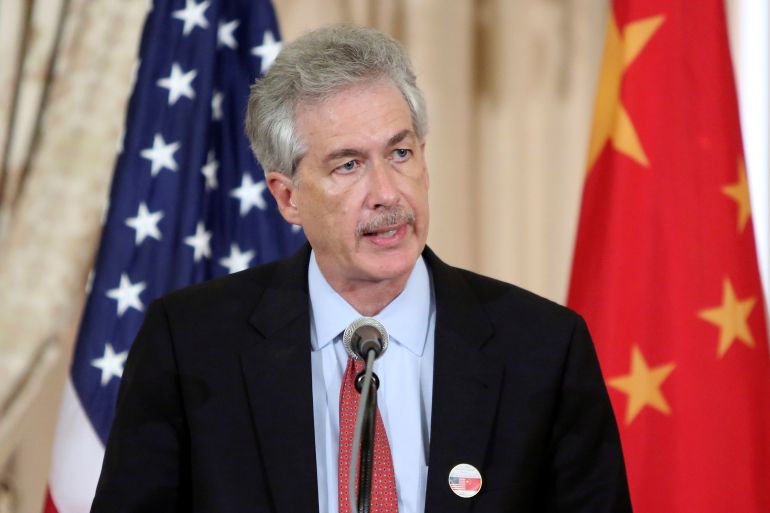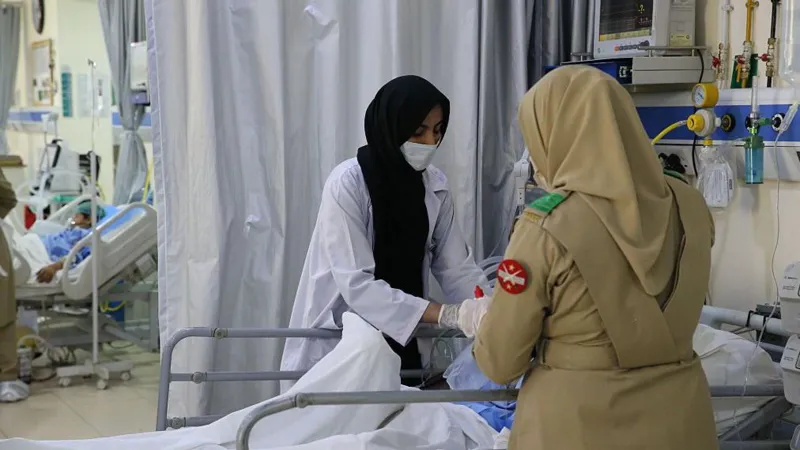CIA chief made secret trip to China amid tensions: US official
CIA Director William Burns emphasised the importance of keeping communication open between China and US.

In a bid to improve communication between Beijing and Washington, the director of the CIA, William Burns, visited China last month for talks with Chinese counterparts, a United States official said.
Burns’s visit in May, which was first reported by The Financial Times, comes as Washington tries to cool tensions with Beijing and restore lines of communication amid fears that a miscommunication between the two global powers could accidentally spiral into conflict.
News of the visit to China comes as US President Joe Biden’s administration has pressed to restore communication and schedule meetings between various top officials in Washington and Beijing.
“Last month, Director Burns travelled to Beijing where he met with Chinese counterparts and emphasised the importance of maintaining open lines of communication in intelligence channels,” a US official told the Reuters news agency on Friday.
Burns met with Chinese intelligence officials and not any of Beijing’s political or foreign policy leadership, according to a second person familiar with the visit who also spoke on condition of anonymity.
The CIA, which does not regularly announce such visits, declined to comment on reports of Burns’s China trip.
Ties between Beijing and Washington have been put under severe strain in recent months over issues ranging from Taiwan and China’s human rights record to Beijing’s growing military activity in the South China Sea and close relations with Russia.
Washington has accused China of considering supplying military aid to Moscow in support of its invasion of Ukraine. China has denied those claims.
Some Biden administration critics have questioned the value of Washington’s overtures to Beijing, arguing that decades of engagement have failed to change China’s approach to a range of issues, including trade, security and human rights.
US Secretary of State Antony Blinken postponed a planned trip to China in February amid a diplomatic storm after the shooting down of an alleged Chinese spy balloon that flew across US airspace and over sensitive military sites.
Also on Friday, US Defense Secretary Lloyd Austin shook hands with China’s Minister of National Defence Li Shangfu on the sidelines of a security summit in Singapore but the two did not have a “substantive exchange”, the Pentagon said.
China earlier declined a formal meeting between Austin and Li, who is under US sanctions, during the Shangri-La security summit taking place over the next few days.
In 2018, Washington imposed sanctions on the Equipment Development Department (EED) of the Chinese defence ministry, and its then-director Li, over the purchase of missiles and fighter jets from Russia.
The sanctions triggered a US visa ban and prohibited the EED and Li from conducting transactions with the US financial system.
Speaking at the summit on Saturday, Austin said dialogue between the US and China was “essential” and will help avoid miscalculations that could lead to conflict.
“The United States believes that open lines of communication with the People’s Republic of China [PRC] are essential – especially between our defence and military leaders,” Austin said in remarks at the summit.
“The more that we talk, the more that we can avoid the misunderstandings and miscalculations that could lead to crisis or conflict,” he said.
Separately, White House National Security Adviser Jake Sullivan said on Friday that the US wanted to engage with China “without preconditions” on nuclear arms control issues, but that Beijing continued to be unwilling.
“Simply put, we have not yet seen a willingness for the PRC to compartmentalise strategic stability from broader issues in the relationship,” Sullivan said in a speech at the Arms Control Association, noting that this had been the bedrock of nuclear and strategic security for decades.
“That’s why we’re also ready to engage China without preconditions, helping ensure that competition is managed, and that competition does not veer into conflict,” he said.
“We’ll see what the PRC chooses to do,” he added.
-al jazeera







